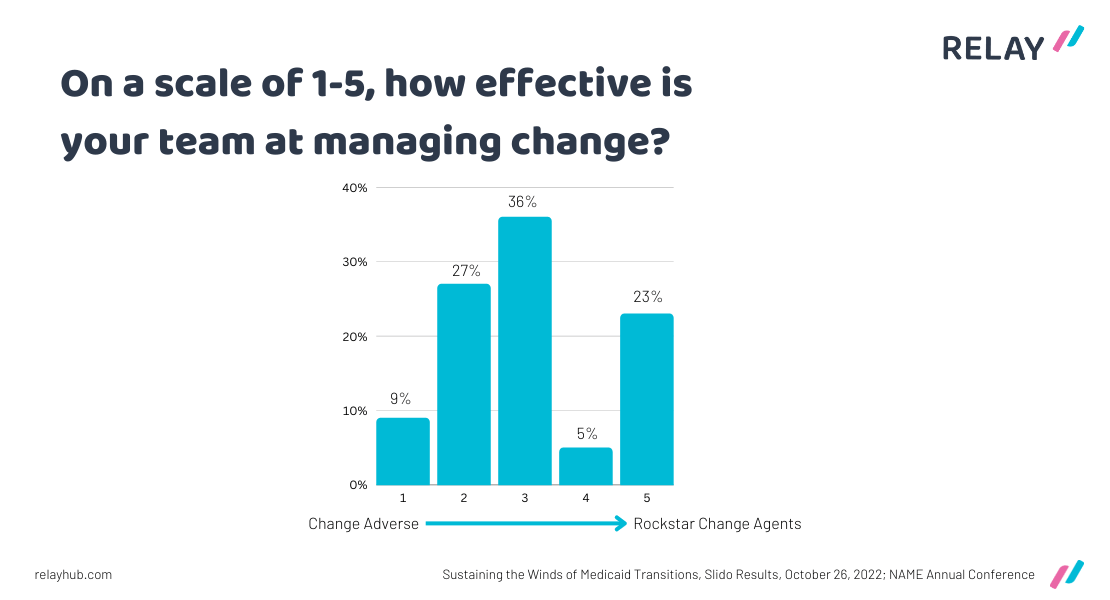
If there was one message that was loud and clear last week at the Annual NAME Conference, it was that School-based Medicaid is challenging, but with the right collaboration in place—you can have smooth sailing!
Last week, Relay (formerly CompuClaim) attended the Annual NAME Conference in Baltimore, MD. NAME is the National Alliance for Medicaid in Education that addresses the complexities and challenges of Medicaid reimbursement. NAME provides leadership, support, and a dedicated peer network to help school districts promote integrity, collaboration, and success. Under the executive directorship of Dr. Jenny Millard—the conference brought together more than 300 attendees from school districts, state agencies, and the federal government—collaboration at its best.
Relay joined Prince George’s County Medicaid team, Ricardo Smith and DeAnna Brown, on Wednesday to present a session on sustaining your Medicaid program through transitions. With staff shortages and high caseloads affecting school districts, the session covered change management best practices, actionable tips to optimize your Medicaid program, and stories how Prince George’s County in Maryland was able to completely sustain Medicaid reimbursements, through Covid and the staff turnovers that followed, by embracing technology, cultivating a change management culture, and optimizing their Medicaid processes.
Throughout the session, we polled the 50 participants from various states to see their thoughts of Medicaid in their own school districts. Here are some of the highlights.
When asking the attendees what words came to mind when thinking about their school Medicaid, it was no surprise to see “stressful” and “chaos” pipe up as the most used words in the word cloud below. School based Medicaid is complex with a series of handoffs that all require precision and trust. However, seeing “excited” and “collaboration” ranking high made us hopeful—because we know that School Medicaid is a team sport, and when done right, can be a much-needed sustainable funding source in your district.

Next, we asked participants to identify current trends they are seeing in their district. By looking at their responses below—it’s easy to see that districts are still feeling the stress from the fallouts of Covid and staff turnover from the industry-wide “Great Resignation.” But what else did we see in this exercise? Well, there it is again…hope and collaboration! Through optimizing your Medicaid workflow in your school district, you will be able to start turning the ship to a hopeful horizon.

Finally, we asked the session participants to rank their Medicaid teams’ change management skills on a scale of 1-5 with 1 being “Change Adverse” and 5 being “Rockstar Change Agents.”
Interestingly, more than 70% of respondents identified their teams to be average or below average in terms of change management, while only 23% regard their team as Rockstar Change Agents. We get it…change is hard, and you need to do it with best practices in mind, including garnering buy in, offering training at all levels, and cultivating a change culture.

We are already looking forward to next year’s Annual NAME Conference as we pack our bags and head to the CASE conference next week in Salt Lake City, Utah. If you are there, stop by Booth #69 as we would love to hear about the trends you are seeing in your school district. (Also, since we changed our name—we got some brand-new swag! Rumor has it we have the best pens on the conference circuit.)
If we don’t get a chance to see you in person, we would love to have you join us at our upcoming webinar. On November 15, we are breaking down school Medicaid processes, step by step, to apply proven frameworks that can help identify pain points, optimize your program, and navigate to a new approach to Medicaid—regardless of what Medicaid vendor you use. Reserve your spot today at this free webinar.